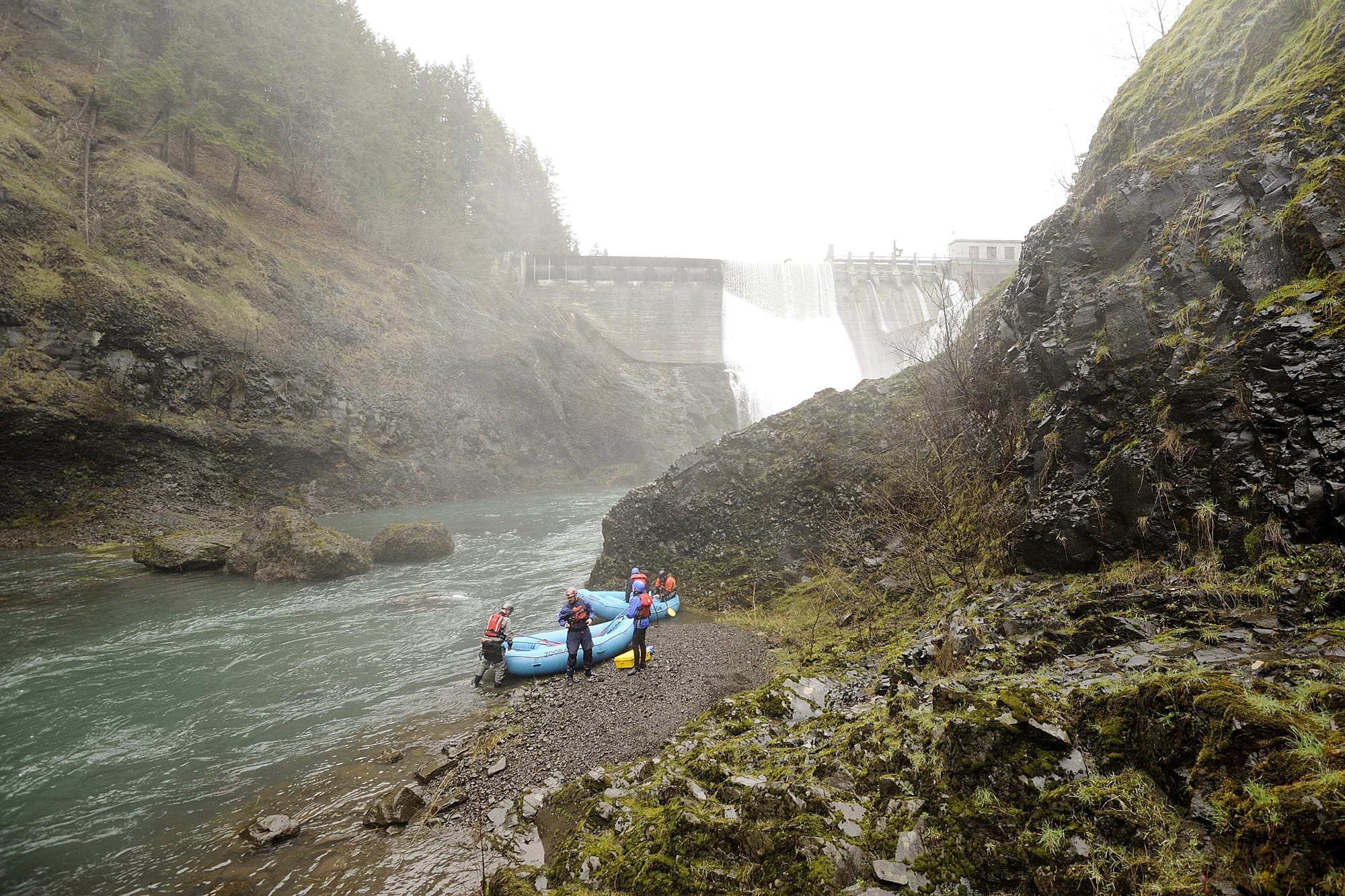New talks now underway aim to craft a long-term plan for conserving a large stretch of the White Salmon River, near the former site of Condit Dam.
And while the ultimate goal of the effort is a conservation strategy for fish habitat, advocates say they’re reaching out to a broad range of groups who use the White Salmon River or call it home. A kickoff meeting in Husum this month drew voices representing many perspectives, said Margaret Neuman, executive director of the Mid-Columbia Fisheries Enhancement Group.
“We do feel like the river is sort of a regional resource,” said Neuman, whose group spearheaded the meeting along with the White Salmon River Watershed Management Committee.
“I think it was a good forum for sharing ideas,” she said.
The lower river changed dramatically after Condit Dam was breached in 2011, then removed in 2012. Even before the structure was fully gone, migratory fish were spotted well upstream. Salmon and steelhead have continued to show promising activity since then, Neuman said.
Shaping the future of the White Salmon River means navigating a complicated web of regional interests. Major players include residents, regulators, rafting outfitters, tribes, environmental advocates and others. The latest effort focuses on the lower 6 miles of the river before it empties into the Columbia River. Condit Dam stood about 3 miles from the White Salmon’s mouth.
Any discussions will likely involve PacifiCorp, the Portland-based utility that operated Condit Dam and still owns much of the land in the area — land that includes dozens of cabins along the river.
PacifiCorp spokesman Tom Gauntt said the company has no plans to transfer ownership of the land any time soon. Revegetation and other work continues, and it may be “several years” before PacifiCorp even considers giving or selling the property to one or more recipients, he said.
Last year, PacifiCorp donated a large swath of land that surrounded another decommissioned dam on the lower Hood River in Oregon. Most of it was acquired by the Columbia Land Trust, a Vancouver-based nonprofit.
The deal, like many major land transfers, didn’t happen quickly.
“Those things shake out over years,” Gauntt said.
The groups hoping to shape the future of the White Salmon River haven’t always seen eye to eye in the past. For the latest effort to be successful, participants will have to take a big-picture approach, thinking beyond just their own priorities, said Todd Collins, co-owner of Wet Planet, a local white-water outfitter.
“There should be some sort of healthy balance where we’re all able to work together,” Collins said. “If you don’t get buy-in from each of the different groups, it won’t work long-term.”
The Mid-Columbia Fisheries Enhancement Group, which is helping coordinate the effort with a state grant, hopes to wrap up the process by the end of this year, Neuman said. Among the issues raised at this month’s meeting were protecting wild fish, boat access, property concerns and the river’s natural recovery, she said.
The removal of Condit Dam created a free-flowing White Salmon River for the first time in nearly a century. It also created a unique opportunity to help ensure it a healthy future, Neuman said.




